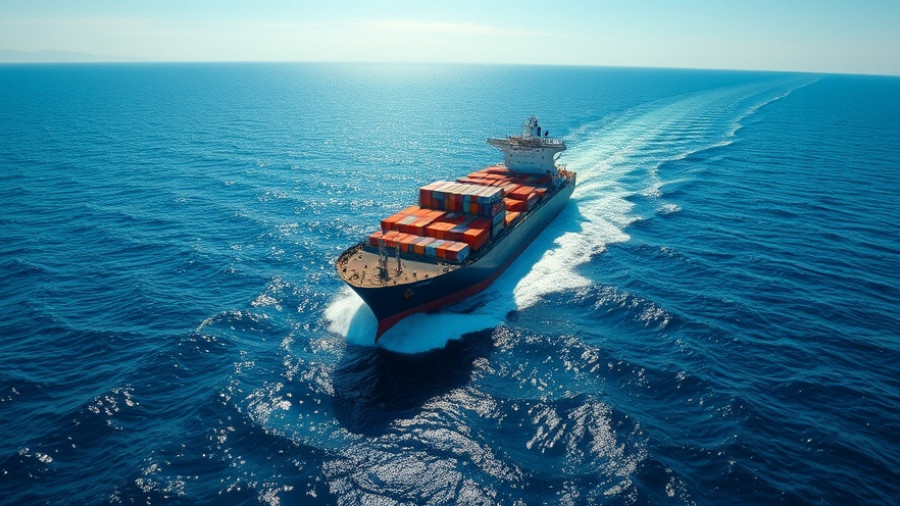
The Postponement of a Just Transition in Shipping
The International Maritime Organization's (IMO) recent decision to shelve talks on the net-zero shipping framework comes as a significant disappointment amid climbing expectations. Originally set for adoption in October 2025, the framework aimed to introduce the first legally binding global carbon price for the maritime sector, which is crucial for streamlining environmental efforts and addressing climate change. With delays, implementation scheduled for 2028 may be jeopardized, emphasizing an urgent need for member states to reevaluate their diplomatic strategies to combat this pressing global crisis.
The Tension Between Global Ambitions and National Interests
For policymakers and stakeholders in Africa, this postponement casts a shadow over the continent's evolving role in global trade. Although Africans have long been part of the maritime tradition, the shipping industry’s transition toward sustainability is increasingly intertwined with issues of national interests and resource allocation. If implemented effectively, the net-zero framework could bolster Africa's position as a critical player in sustainable shipping practices, potentially unlocking new economic opportunities and partnerships, especially with international entities such as the EU and China.
Global Trade Dynamics and Africa's Green Agenda
The delays in establishing protocols present a double-edged sword, jeopardizing not just the environment, but also Africa's burgeoning role in global trade. The continent's participation in initiatives like the African Continental Free Trade Area (AfCFTA) aligns with sustainable investments in transport and infrastructure, paving the way for cleaner shipping options. Should global leaders find common ground on the framework, Africa stands to benefit by attracting green investments and reinforcing its commitment to the digital economy—a necessity in the competitive landscape of global supply chains.
A Call for Unity and Action
In light of the setback, it is crucial for African nations to actively engage in the discourse surrounding environmental regulations. This requires not just a commitment to sustainability but also a unified approach to advocacy, where aiming for zero emissions in shipping understandingly reflects local and global priorities. The path towards this ambitious target hinges on the dialogues that will resume as member states are urged to synchronize their ambitions to blend equity with technological advancement.
Conclusion: The Urgency of Collective Action
As stakeholders look toward the future, it remains paramount that African leaders position themselves alongside their global counterparts to prevent delays in adopting crucial frameworks like the one discussed. The fate of sustainable shipping transcends national borders and emphasizes the need for collaborative, decisive actions in diplomacy and environmental policy. As these discussions continue, all eyes should be on the coherence and commitment of international bodies and member states to deliver meaningful changes that will define the next era of global shipping.
 Add Row
Add Row  Add
Add 


Write A Comment